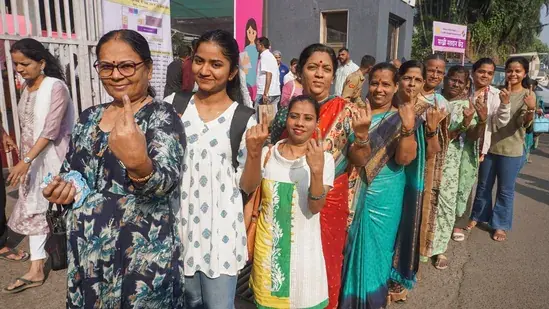The Law Behind Electoral Rolls
- Wishwanath Garud

- Aug 25, 2025
- 3 min read
Part 3: Who Can Be Registered as a Voter? Understanding Sections 19 and 20 of the RPA, 1950

In Part 1 of this series, we traced the constitutional foundations of India’s election system, focusing on the powers of the Election Commission under Articles 324–329 and the safeguards built to ensure its independence. Part 2 then moved to the Representation of the People Act, 1950, which sets out how electoral rolls are prepared and maintained.
In Part 3, we turn to a crucial question: who can be registered as a voter? Sections 19 and 20 of the Act spell out the conditions for voter registration, particularly the meaning of being an ordinary resident of a constituency. This concept is central to determining where a citizen’s name is entered on the electoral roll, and it has been clarified both through legislation and landmark Supreme Court judgments.
So, what do these sections actually say? The name of any citizen of India who has attained the age of 18 may be entered on the electoral roll. But the question arises: on which electoral roll? Since each Assembly constituency has its own roll, in which constituency should that person’s name appear? The answer lies in Section 20 of the Representation of the People Act, 1950. This provision makes it clear that an individual’s name will be entered on the roll of the constituency where he or she is ordinarily resident. Before turning to Section 20, however, it is worth first examining what Section 19 of the same act states.
Section 19 of the Representation of the People Act, 1950, states that a person can be registered as a voter if they are at least 18 years old and are an ordinary resident of the constituency. Section 20 explains the concept of an ordinary resident in detail, and understanding this is essential.
To qualify as an ordinary resident under Section 20, a person does not need to own or permanently stay in a house in the constituency, nor reside there all year. The focus is on their intent and current residence at the time of electoral registration; temporary absences for work do not disqualify them as ordinary residents.
Even if a government official, Defence personnel, officer in the Defence, or police officer has a house in a village and they are living in another city of the state on account of the work, they remain an ordinary resident of the constituency in which their name is registered as a voter. If they live in another city or state on account of work and do not reside in their native place, then their name cannot be removed from the relevant electoral roll. Similarly, if a mentally ill person is undergoing treatment in a hospital, or if a person is in jail due to a sentence passed by a competent court, or a case is pending against them, it does not mean that he has ceased to be an ordinary resident of their constituency. Detailed provisions in this regard have been made in the sub-sections of this section. If there is any objection to the ordinary residence of a person, then the Central Government should decide based on rules framed by the Central Government in consultation with the Election Commission of India, taking into account all the facts of the case.
Jyoti Basu vs Debi Ghosal
This is an important case in the history of Indian elections. In this case, the Supreme Court has given a detailed explanation on whether the right to vote is a fundamental right or a right granted by law. In it, the Supreme Court has said that it is a completely statutory right. This right can be exercised only as per the provisions of the statute. It means this right is not unlimited. This right can be exercised by the voters only as per the provisions made in the Representation of the People Act, and this law will control it. When an election petition can be filed, in which court the case will be tried, and what will be the time limit for filing the case – all these will be applicable only as per the relevant law. The Supreme Court has said that this is a special type of provision.
To be continued…
(The writer is an author and a digital journalism teacher. Views personal.)





Comments